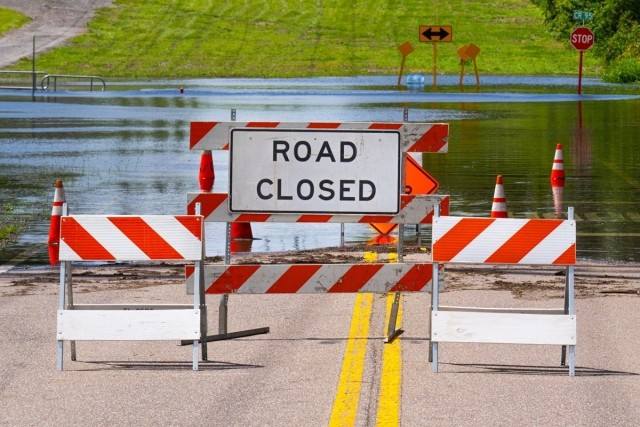What do renters and landlord insurance really cover and why it is important? Both forms of liability coverage protect landlords and tenants alike from different damages that might occur. Whether an unexpected fire starts in your space or a rough storm damages your property, renters and landlords can feel at ease from mental and financial stress with the help of these insurances.
What Is Landlord Insurance?
Landlord insurance is the insurance a property owner has over a physical structure and is designed to protect these owners from financial losses and liability claims. Landlord liability insurance is important for property owners because it can protect you from damages that occur to either your physical property or a tenant on your property.
What Does Landlord Insurance Cover?
Landlord insurance provides coverage for landlords in four areas: property damage, liability, loss of rental income, and non-occupied rentals. This coverage may protect landlords from incurring any legal or financial damages from incidents that occur on your property. Let’s break each one of these down:
1. Property Damage
Property damage coverage covers damage to the physical property caused by natural elements such as wind, rain, lightning, etc. Some policies may even cover personal property that renters use, such as kitchen appliances, televisions, etc.
2. Liability
Liability coverage is important when it comes to tenant injuries on your property. If a tenant gets in an accident on your property, they may sue. Liability coverage for landlords and as a part of landlord insurance protects landlords from financial damages and may even pay the medical expenses that arise because of the incident.
3. Loss of Rental Income & Non-Occupied Rentals
If your property becomes damaged, you may not be able to rent out your space, causing you to lose money. Some policies included in different landlord insurances may cover your losses and match the income you have lost because of the damages. Similarly, if your rental space is not being used for an extended period of time, natural elements may damage your space without someone there to report these damages. Landlord insurance includes a non-occupied rental policy that can cover these costs if the property has been unoccupied for more than 30 days.
What Is Renters Insurance?
Renters insurance is a policy that protects a tenant’s personal belongings and can provide liability coverage in case of an unexpected peril. Tenant insurance is important for the renter as it can protect any and (almost) all items if an unforeseen incident damages these items, as well as provide protection from potential financial damages.
What Does Renters Insurance Cover?
The inclusion of renters insurance in a lease or agreement is becoming increasingly more common due to financial and legal damages brought against both tenant and landlord. Tenant insurance protects and covers renters when it comes to personal property, personal liability, and additional living expenses. Let’s go over each of these:
1. Personal Property
Personal property coverage covers the cost of personal belongings that may have been impacted in the event of a peril. This can include clothes, electronics, and furniture. If any of these items were to be damaged or lost because of an unexpected event, personal property coverage would cover these costs.
2. Personal Liability
Personal liability coverage included in renters' insurance covers the costs that may arise due to claims and lawsuits dealing with property damage or bodily harm brought against the renter. This coverage can include the medical expenses that may incur as well as legal costs.
3. Additional Living Expenses
Additional living expense coverage applies to all the additional costs that may incur because the tenants' space is uninhabitable, such as hotel costs.
Cost of Landlord and Renters Insurance
Renters insurance costs can range from $10 to-$30 a month, averaging around $120-$180 a year. Breaking it down, renters’ insurance typically covers $25,000 for personal property damages, $100,000 for liability coverages, and, typically, around a $500 deductible. Tenant insurance requirements differ based on the state, and renters' insurance is currently not required by law, although it is recommended.
The cost of landlord insurance is more complicated- it differs based on several factors such as the number of rentals, longevity of rental spaces, location, etc. On average, landlord insurance costs about 25% more than renters' insurance, and is also not required by law, but again, strongly recommended.
Why Are These Insurances Essential?
Landlord and renters’ insurance are mutually beneficial policies. Landlord insurance is important because it can protect you and your property from physical and financial damages. Whether it be natural disasters, tenant damage, or repairs and replacements on equipment, this rental property insurance can act as a safeguard for property owners protecting their investments.
Renters insurance is essential for both tenant and landlord to ensure equal protection of both parties. Although landlords do not have to require renters' insurance in their leases, this insurance is a way to give landlords piece of mind, reduce their responsibility in the case of damages, and mitigate the threat of a lawsuit if it were to arise.
Ready to Be Insured?
The message is clear: both renters and landlord insurance are important. The real question is what is the best renters and landlord insurance on the market?
If you’re searching for enhanced liability coverage, personalized coverage, or are a first-time landlord, researching companies beforehand is a way to ensure you’re getting the most out of your plan. Renters insurance is similar- different insurance companies offer specific insurance bundles (like auto and renters) or rank higher due to their pricing or coverage options. It is important to do the necessary research before choosing an insurance plan that is right for you and will provide the specific coverage you’re looking for!
This article is for informational purposes only. Insurance requirements and regulations vary widely by location and individual circumstances. Before making any decisions regarding insurance, consult with a licensed insurance agent familiar with your specific situation and your local laws.
FAQs
1. Why is landlord insurance important?
Landlord insurance is important to protect you from potential legal and financial damages. Investing in this type of insurance is a way to safeguard both you as a landlord and your property.
2. What is the best landlord and renters insurance?
Landlord and renters’ insurance differ from plan to plan based on the type and amount of coverage you’re looking for, as well as price. Every plan is different and should be chosen based on your personal insurance needs.
3. What happens if I don’t have landlord insurance?
Landlord insurance is currently not required by law but can be helpful when it comes to covering financial and legal damages concerning your property. If you do not invest in this insurance, natural elements such as wind and rain can damage your property, and you will have to pay for these damages in full. If a tenant is injured on your property, you may be held responsible in legal cases. Overall, it is safer and more beneficial to have this insurance than not.
4. How do I check if my tenant has renters insurance?
To verify your tenant has renters insurance, you should ask for proof of renters insurance. This can come in several different forms:
- Renters insurance declarations page
- Entire renters insurance policy document
- Contact from insurance agent
- The policy number and insurance company











